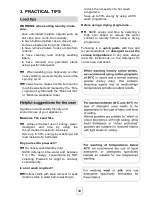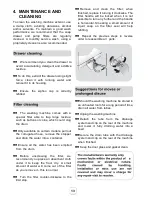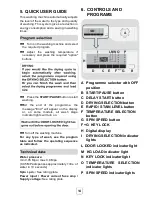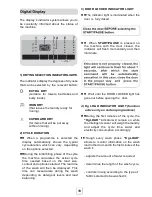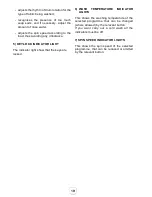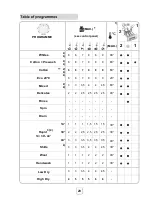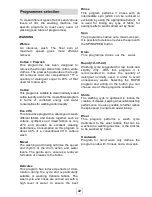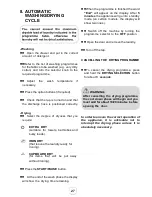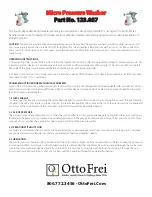
25
7. DRYING CYCLE
Drying guidance advice is general, but
practical experience of using the product
will help you to achieve the best drying
results.
We recommend setting a lower drying
time than indicated, when first using the
appliance in order to establish the degree
of dryness required.
We recommend not drying fabrics that
fray easily, such as rugs or garments with
a deep pile, in order to avoid air duct
clogging.
We recommend that you sort the laundry
by the following methods:
- By drying care symbols, which are
displayed on the clothing labels
Suitable for tumble drying.
Tumble dry at high temperature.
Tumble dry at low temperature only.
DO NOT
tumble dry.
- By size and thickness
Whenever the wash load is bigger than
the drying capacity, separate the clothes
according to thickness (e.g. towels from
thin underwear).
- By fabric type
Cottons/linen: towels, cotton jersey, bed
and table linen.
Synthetics: blouses, shirts, overalls, etc.
made of polyester or polyamide, as well
as for cotton/synthetic mixes.
Only dry pre-spun laundry.
Open the door.
Fill with the laundry, not exceeding the
maximum drying load indicated in the
programme table. For large items (e.g.
sheets) or very absorbent items (e.g.
towels or jeans), it is a good idea to reduce
the load.
Close the door.
Turn the programme dial to the more
suitable drying programme for your laundry.
The washer dryer can perform the
following types of drying:
- Low temperature
drying programme
recommended
for
mixed
fabrics
(synthetics/cotton) synthetic fabrics.
- High temperature
drying programme
recommended for cotton, terry toweling,
linen, hemp fabrics, etc...
Select the degree of dryness that you
require:
EXTRA DRY
(suitable for towels, bathrobes and
bulky loads).
IRON DRY
(that leaves the laundry ready for
ironing).
CUPBOARD DRY
(for items that will be put away
without ironing).


